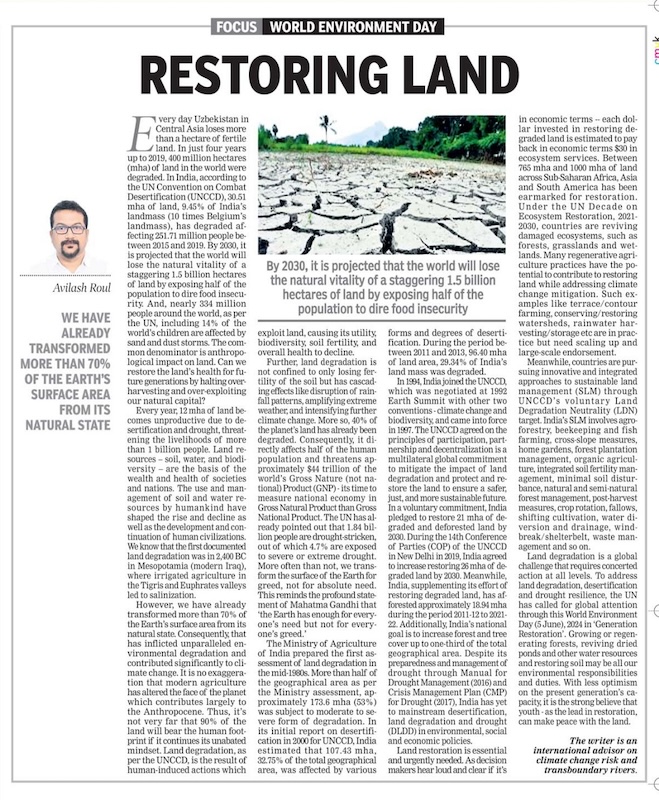Right To A Healthy Environment: Citizen's Right Vs State's Obligation
Do we have the right to a clean, healthy and sustainable environment? One of the most obvious questions, even the cycle of heat waves engulfing India this summer, has been missing during the largest democratic practices as 834 million Indians are voting in the 2024 General Elections. Ironically, the election manifestos of both national and regional political parties have failed to commit to ensuring the right to a healthy environment for all Indians if they are elected to power on June 4, 2024. At best, environmental well-being is a non-issue in this General Election.
Dehydrating Indus: India and Pakistan Need to Set Future Agenda
Thinking about a majestic river as the Indus River in South Asian set up attracts more perspective and more situation room strategies than a possible benefit sharing solution. From countless war strategies to suing each other in legal battle, from instigating to investigation, from hydro-phobia to hydro-politics, from misinformation to deliberately uninformed, India and Pakistan have been engaged in myriad exchanges and wasting time and opportunity. The exception could have been only during ancient Indus Civilisation where settlements at both sides of the river respected Indus as one.
Back in the Fray: India and Climate Negotiation
India’s announcement on voluntary reduction of the greenhouse gas (GHG) emissions has accelerated otherwise snail-paced negotiation on a deal to be reached at Copenhagen this December. It is a welcome step but tactical move. From the solitude of obstructing, as many argue, to all inclusive to the Copenhagen, India has sent a signal of relief to the climate negotiators, mostly representatives of developed countries. If world sees this Indian move as a surprise, they are wrong.
Sri Lanka Environment Levy Bill: Politics of Adaptation Fund
Global climate politics is finally at home. Much controversial Environmental Conservation levy bill passed without a debate in Sri Lanka Parliament on April 9, 2008. According to Environment Minister Champika Ranawaka the Bill is based on the ‘polluter pays principle’. While the tax itself not justified in the Bill, the question remain why the levy charged for electronic items, phone bills and electricity bills for the climate adaptation Fund.
Environmental Threat beyond McMahon Line
The impending danger of bursting of an artificial lake/dam on the Pareechu River in the Tibet Autonomous Region of People’s Republic of China has been subsided. Indian government, policy makers and security analysts were on tenterhooks till the danger was hovering over their head. The situation was in fact no less serious that the traditional military threat emanating from across the frontiers.
Paxton ported to drupal by DropThemes.in





